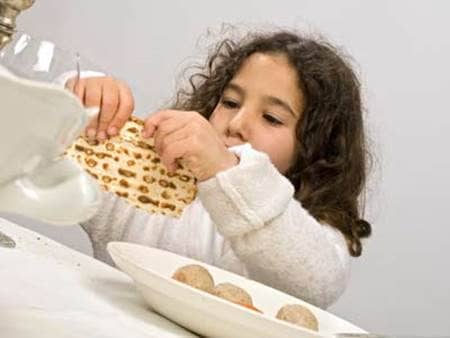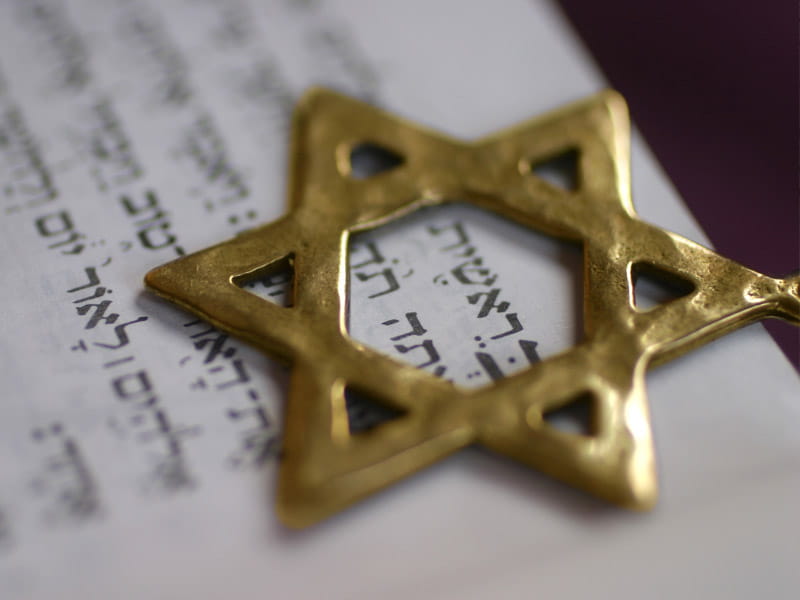
Why is this night different from all other nights?
On all other nights we eat leavened products and matzah, and on this night only matzah.
On all other nights we eat all vegetables, and on this night only bitter herbs.
On all other nights, we don't dip our food even once, and on this night we dip twice.
On all other nights we eat sitting or reclining, and on this night we only recline.
Although I have been a Christian for more than a decade now, my Jewish roots run deep. I was raised in a conservative Jewish home. Every year, my mom invited our extended family over for the Passover seder. Seder means "order." The seder dinner follows a set pattern, and one of the highlights is the reciting of the Four Questions by the youngest member at the table.
I remember when I was called upon to sing these Four Questions in Hebrew—with some pride, but mostly terror. Fortunately, my younger brother was only two years younger than me, so my tenure as youngest only lasted two seasons.
The Four Questions are really one question with four answers: Why is this night different from all other nights? As a Christian celebrating Passover, I now approach this question in light of the sacrifice of Jesus. For me, the Passover celebration of freedom from Egypt has become interwoven with the Easter story. The empty chair we set for Elijah has been filled by Jesus.
Remember, I hear God whisper in my ear, the Passover meal is also Jesus's Last Supper. God's emancipation for the Israelites is now extended to all people, in all cultures, in all times, through the death and resurrection of Christ Jesus.
As I prepare to travel home to celebrate Passover with my family, I am pondering a variation of this question: How will this Passover be different from all others?
On one level, the answer is simple: This will be my family's first Passover celebration without my mother. Last August, my mom passed away. As anyone who has lost a loved one knows, firsts are always hard. My older sister will be hosting the seder, and my younger sister and I will cook. In addition to cleaning the house of any leaven bread, we will be taking on the emotional task of cleaning out my mother's closet. The clothes will be going to people who need them, an appropriate way to honor my mother's generous heart.
This Passover, however, is not just about what has been lost but what can be gained. And what can be gained is a greater appreciation for the freedom we enjoy through God's sacrifice.
The Jews became an independent people when God freed the slaves from Egypt. One of those Jews, Jesus of Nazareth, was sacrificed so that you and I can enjoy the precious gift of freedom. Freedom from the heavy yokes of slavery—to this world and to sin—that separate us from God.
During this Passover, I am re-examining the yokes I carry.
What household possessions or time commitments are enslaving me? Is there a form of technology that is ruling me like a master rather than serving me as a tool? Am I enjoying God's creation, where my spirit is set free by soaking in the delight of spring green and carpets of wildflowers?This year, my niece will be reciting the Four Questions at our Passover seder. And as I listen, I will be praying that my brothers and sisters throughout the world will remember to celebrate the gift of freedom during this Passover/Holy Week—and throughout the year.
Nancy Sleeth is the author of Almost Amish: One Woman’s Quest for a Slower, Simpler, More Sustainable Life. Recognized by Newsweek and Christianity Today as one of the “50 Evangelical Women to Watch,” Nancy is the co-founder of Blessed Earth, a Christian environmental nonprofit.

